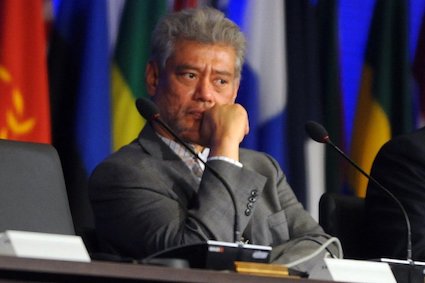Privatization Increases Corruption

Jomo Kwame Sundaram
International financial institutions (IFIs) have typically imposed wide-ranging policy reforms – called ‘conditionalities’ – in exchange for country governments to secure access to financial assistance.
While IFIs may demand anti-corruption policies, other IFI policy conditionalities, such as the privatization of state-owned enterprises (SOEs), can create new rentier opportunities, undermining government will and capacity to curb corruption.
IMF cure worse than disease?
Statistical analysis of International Monetary Fund (IMF) conditionalities on 141 developing countries from 1982 to 2014 has found that requiring privatization of SOEs has undermined anti-corruption efforts.
The study finds that IMF conditions requiring SOE privatization undermine anti-corruption efforts, both in the short-term, i.e., up to five years, and especially in the longer-term. Other IMF interventions have not effectively deterred corruption, which has clearly risen following privatization, especially in Latin America, sub-Saharan Africa and East Asia.
Meanwhile, studies of IMF policy paradigms after the 2008-2009 global financial crisis, suggest changes in rhetoric, rather than actual policies, as IFI leaderships have many reasons to maintain old practices.
IFI imposed reforms typically require governments to cut public expenditure, privatize state-owned assets, liberalize markets and deregulate prices, ostensibly to foster economic growth, promote ‘good governance’ and counter corruption.
Despite weak and ambiguous evidence, IFI advisers presume that market-liberalizing reforms will counter corruption. IFIs seek to privatize SOEs, presuming they have ‘governance structures’ liable to ‘political interference’ undermining development.
While some claim that free markets are associated with less corruption, others argue that SOE privatization has induced corruption, e.g., those with good connections successfully appropriate former SOEs, often for ‘asset-stripping’ and other such ends.
Powerful IFIs successfully promoted their reform agendas in developing countries when governments lacked the capacity to resist. IFIs thus served as agents of policy reforms desired by powerful governments, rather than those needed for national progress.
IFIs pushed for privatization, without considering conditions needed to avoid abuse. They transplanted ‘regulatory innovations’ from the developed world onto developing countries, often regardless of local contexts. Hence, the IFIs rarely facilitated, let alone required responsible regulation.
Insider information for corruption
Privatization induces corruption by creating new rents and unleashing processes that undermine anti-corruption efforts. While privatization generates rents to be captured, especially by ‘insiders’, rent-seeking undermines safeguards against such abuses.
Different modes of privatizing state-owned assets create economic rents, e.g., by putting public assets up for sale to be more easily appropriated privately. Corruption opportunities arise from privatization processes, especially from the sale of public assets, especially when managed by former SOE managers.
Information advantages enable rent appropriation, encouraging corruption to secure advantage. Outsiders have less access to information than ‘insiders’, such as managers and public officials, who use it to enrich themselves.
Greedy managers may fake accounts and undervalue firms in order to buy them cheap. Bidders may also try to influence key decisionmakers to secure rents from privatized SOEs.
Undermining anti-corruption
Once ‘privateers’ have acquired assets, they try to protect these acquisitions and related incomes, and to avoid detection and punishment, e.g., by bribing key public officials to get favourable treatment.
Privatization tends to weaken anti-corruption efforts as institutions deteriorate. Even if most people are not corrupt, such efforts weaken institutions, and consequently enable corruption. Thus, corruption associated with privatization reduces anti-corruption efforts.
Evidence on conditionalities said to reduce corruption is less conclusive. While they may reduce corruption in the short term, such reforms are likely to be detrimental in the longer term.
‘Insiders’ use their advantages to acquire newly privatized state assets, seizing new opportunities engendered by privatization. As favourable treatment in exchange for inducements to decision-makers is illegal, those involved cover up their corrupt activities.
Privatization generates massive rents that increase corruption, while motivating rentiers and rent-seekers to weaken state capacity. The resulting vicious circle of weakening institutions and increasing corruption is difficult to end.
No neoliberal solutions
IMF conditions seeking to eliminate rents are rarely effective because governments and insiders find other ways for the influential to capture rents. Reduced government capacities and capabilities also compromise the efficacy of anti-corruption efforts, even if serious.
Privatization thus undermines anti-corruption efforts, while privatization and market liberalization do not reduce corruption, as claimed by neoliberals. Thus, reduction of the state role in the economy, market liberalization and privatization have worsened corruption.

